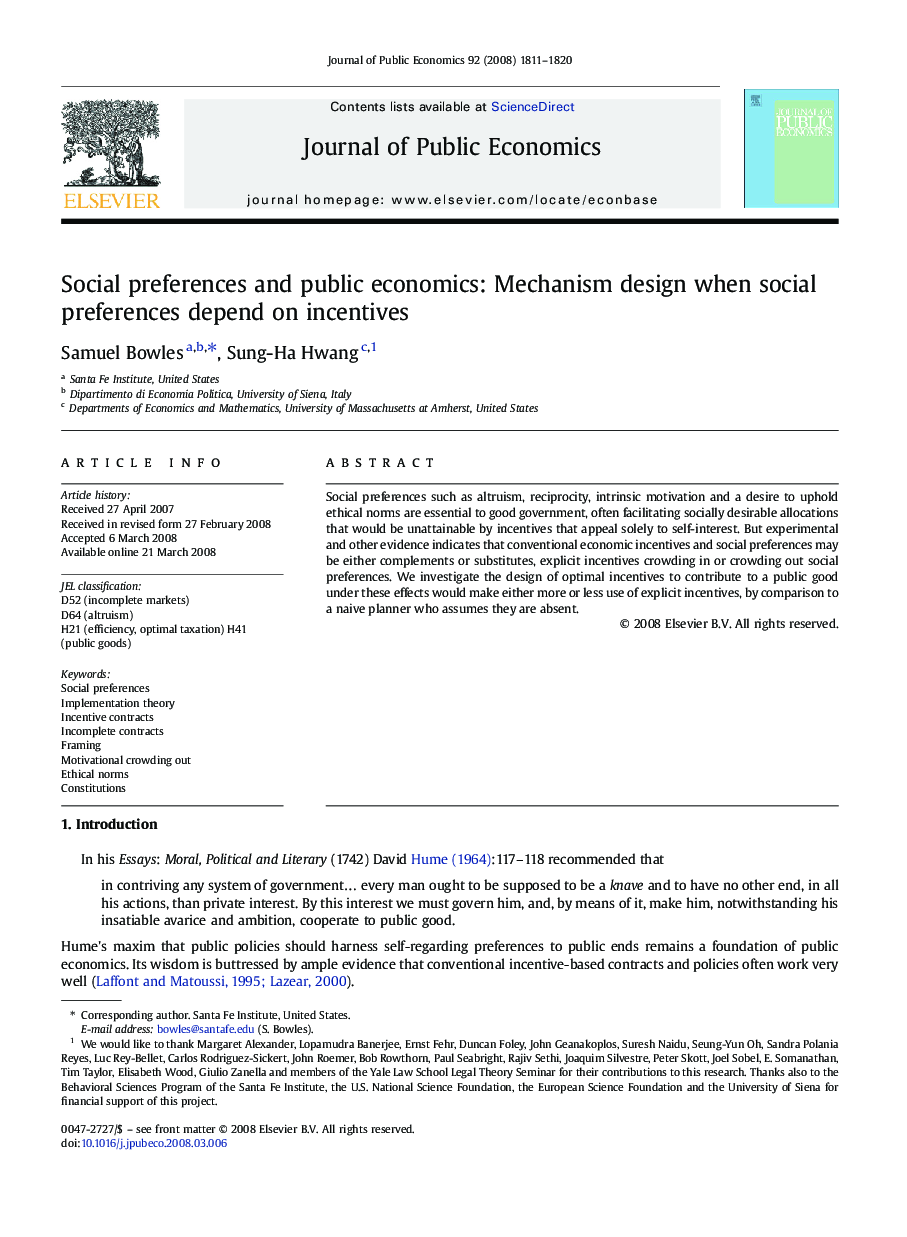| Article ID | Journal | Published Year | Pages | File Type |
|---|---|---|---|---|
| 969491 | Journal of Public Economics | 2008 | 10 Pages |
Abstract
Social preferences such as altruism, reciprocity, intrinsic motivation and a desire to uphold ethical norms are essential to good government, often facilitating socially desirable allocations that would be unattainable by incentives that appeal solely to self-interest. But experimental and other evidence indicates that conventional economic incentives and social preferences may be either complements or substitutes, explicit incentives crowding in or crowding out social preferences. We investigate the design of optimal incentives to contribute to a public good under these effects would make either more or less use of explicit incentives, by comparison to a naive planner who assumes they are absent.
Keywords
Related Topics
Social Sciences and Humanities
Economics, Econometrics and Finance
Economics and Econometrics
Authors
Samuel Bowles, Sung-Ha Hwang,
